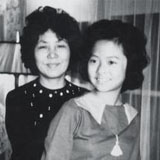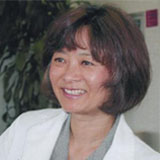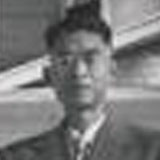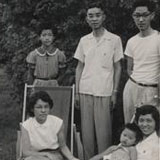Biography: Dr. Rebekah May Wang-Cheng

I wanted to help people become their best mentally, physically and spiritually. My mom, who is a registered nurse, had passed up a chance at medical school to marry my dad. She was my biggest cheerleader and motivation.
In 2002, after two decades in academic medicine, Rebekah Wang-Cheng, M.D., decided to leave the Medical College of Wisconsin and open a solo practice in California. Much to her delight, she found that while she no longer held the title of professor, she would always be a teacher. "Teaching is my passion," she said. "For nineteen years I taught medical students, residents, and junior faculty. Now my focus is more on teaching and empowering patients and nurses."
Born in Galesburg, Illinois, in 1953, Dr. Wang-Cheng wanted to become a physician after spending time at the nursing home owned by her parents. Following undergraduate work at Andrews University in Berrien Springs, Michigan, Rebekah Wang-Cheng graduated from the Loma Linda University School of Medicine in 1978. She remained at the Loma Linda University Adventist Health Sciences Center for her psychiatric internship and internal medicine residency, and later served her first teaching posts at Loma Linda University School of Medicine as instructor in medicine and assistant professor from 1983 to 1985.
Dr. Wang-Cheng served on the faculty of the Medical College of Wisconsin from 1985 to 2002, and completed a year's fellowship in medical education at the Medical College of Wisconsin in 1993. With training in both psychiatry and internal medicine, Dr. Wang-Cheng focused her research on psychosomatic medicine and hormone replacement therapies.
During her tenure at the Medical College of Wisconsin, Dr. Wang-Cheng received numerous teaching awards, including an "outstanding teacher" recognition by junior students every year from 1990 through 1998. In 1998 she received the Golden Apple Award for excellence in teaching internal medicine. She also received the school's highest teaching honor, membership in the Society of Teaching Scholars. In 2000 Dr. Wang-Cheng was chosen president of the Faculty Council and served as the spokesperson for over 900 faculty members.
From 1995 until she left Wisconsin in 2002, Dr. Wang-Cheng wrote a bi-weekly question-and-answer column for the Milwaukee Journal Sentinel. Still syndicated over the Internet, "Dear Dr. Becky" was one of the paper's most widely read columns. Dr. Wang-Cheng has also been an associate editor of the British Medical Journal-USA, and has published numerous articles and book chapters on topics including eating disorders, chronic fatigue syndrome, and the doctor-patient relationship. Dr. Wang-Cheng has also served as an on-screen physician for videos on medical topics and as co-host of the Adventist Development and Relief Agency World, a cable program reporting on humanitarian work. Listed in the 2000 Guide to Top Doctors in America, Dr. Wang-Cheng is a member of the American College of Physicians, Alpha Omega Alpha, and the Christian Medical and Dental Society. The mother of three sons, Christopher, Andrew and Ryan, Dr. Wang-Cheng says she enjoys playing the piano and eating healthfullyexcept for dark chocolate.
In private practice in Deer Park, California, Dr. Wang-Cheng explains her new path, "I've discovered that 'all the world is a classroom', and patients of all ages, given the time and opportunity are some of the most eager learners." In an effort to fulfill her life's goal of helping people to become their best mentally, physically and spiritually, Dr. Wang-Cheng is now practicing at St. Helena Hospital, the longest continuously operating Seventh-Day Adventist hospital on the West Coast.
What was my biggest obstacle?
My biggest obstacle was that I don't really like needles and blood ha! Also, I preferred English and music (right-brain stuff) to studying anatomy and biochemistry.
How do I make a difference?
Teaching is my passion. For nineteen years I taught medical students, residents and junior faculty. Now my focus is more on teaching and empowering patients and nurses. My reward is when patients understand their health needs and illnesses and become partners with me in getting better.
Who was my mentor?
I had many mentors:
1) Glen Foster, M.D., a cardiologist when I was a student, who was the epitome of competence and compassion.
2) Irwin Kahn, M.D., a hematologist/oncologist when I was a resident with two babies, who told me never to take work home.
Mark Young, M.D., and Ann Nattinger, M.D., were both my chiefs who really furthered my career and helped me network into national circles.
How has my career evolved over time?
Teaching residents and students was indeed the "fire in my belly," my calling and passion for nineteen years. Now in solo practice in California, I have thoughts and glimpses on both sides medicine. When I left academic medicine, I discovered that "all the world is a classroom" (to paraphrase Shakespeare), and patients of all ages, given the time and opportunity, are some of the most eager learners. Leaving my comfort zone of academic medicine has given me a new appreciation for what thousands of primary care physicians do around the world. They are hospitalist, consultant, clinic doctor, and CEO or partner. In the ivory tower, I didn't appreciate how difficult a task it is, how much admiration is owed them. I do now...having been on both sides.







